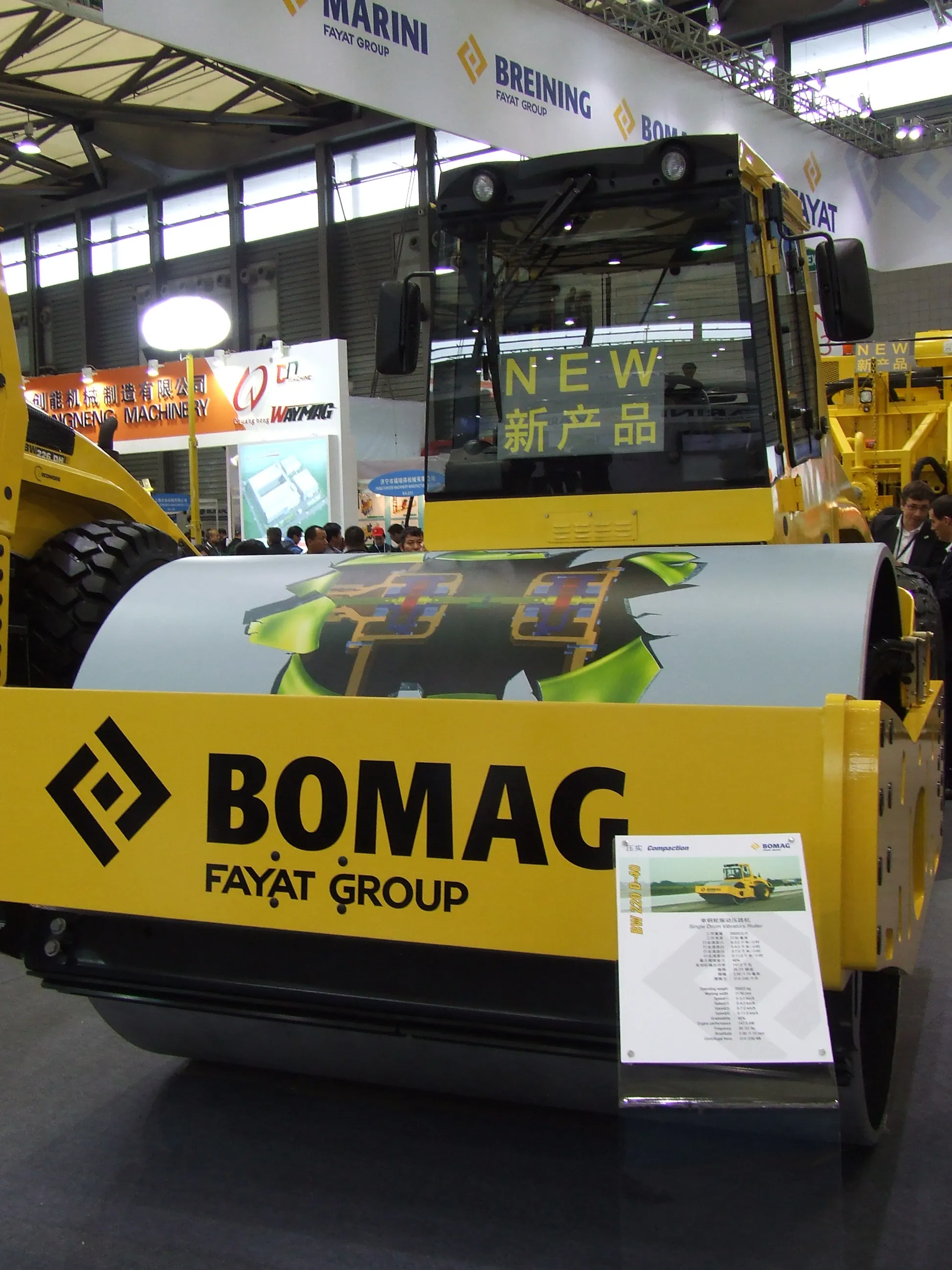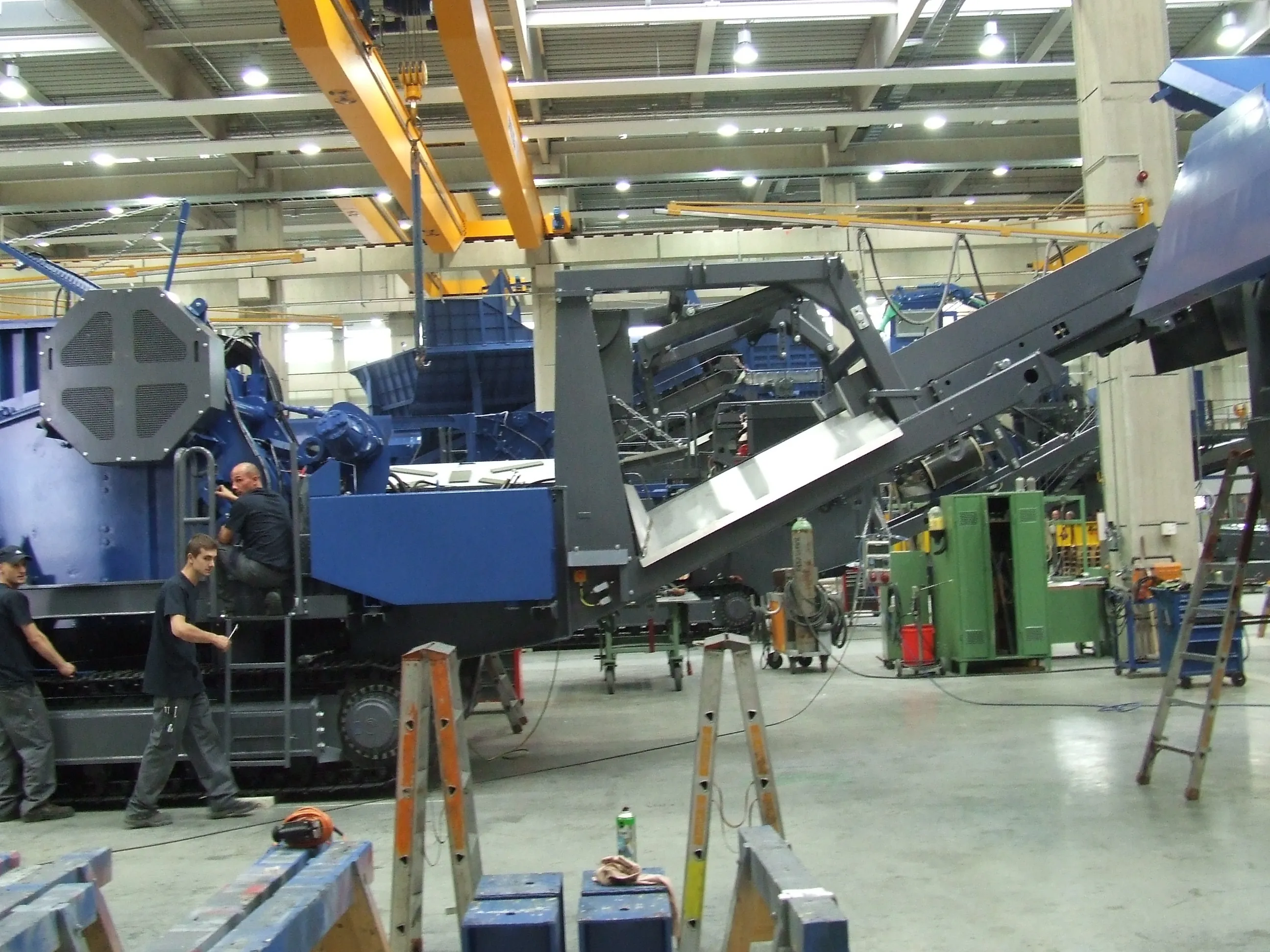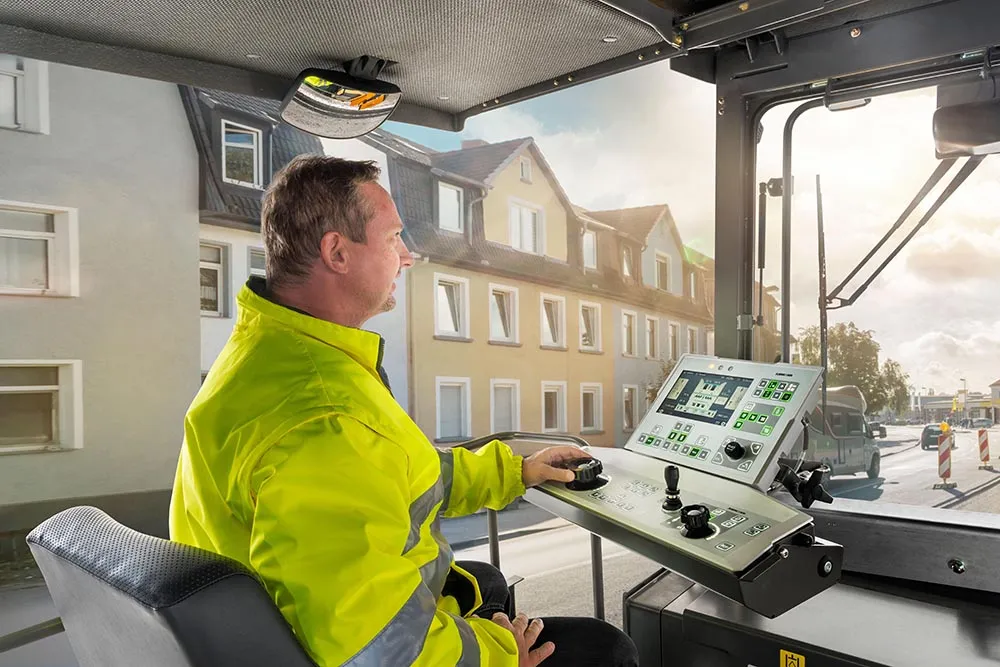
New for
Karl-Otto Ueberbach is vice president for the Asia/Pacific territory and he explained that customers are now looking for high quality, high technology solutions for many of their larger contracts. While the volume market for road machines remains for cheaper equipment, quality units such as BOMAG’s BF300 and BF800 asphalt paver are now finding steady sales into China. Exhibited at bauma China with fixed screeds, this set-up suits use on large highway projects where there is still market potential.
The RS950 stabiliser meanwhile is said to be the most powerful reclaimer/stabiliser on the market, with power from a diesel delivering 708kW. Ueberbach added that the machine is well-suited to duties in large road recycling jobs in China, where road structures typically feature a cement base.
Also new to China are the BM1000/35 milling machine and the BW151AD-5 twin drum roller and BW27RH rubber tyred roller. Ueberbach explained that with the reliability of asphalt compactors crucial to ensuring paving quality, Chinese contractors are prepared to pay more for higher specification machines.
Meanwhile the company has also unveiled an all-new soil compactor, aimed specifically at Chinese customers. The new BW220-D4 single drum roller is said to offer high performance at low cost and is built in the company’s Chinese factory close to Beijing. The company’s production facility has benefited from major investment to boost both capacity and quality.









